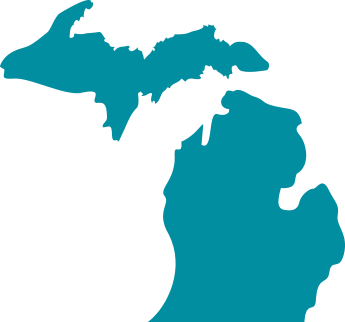Project Timeline:
Locations Impacted:

A project of the Council of Michigan Foundations


The Michigan Emergency Cash Flow Loan Fund was established in 1983 to provide short-term assistance to Michigan nonprofits during emergency cash flow situations, so that they could continue offering vital services to their clients. Such emergency situations were often the result of “delayed reimbursement or payment of grants and contracts, unforeseen cash requirements, and/or inadequate cash flow planning.” The early 1980s recession and cutbacks in government funding for social programs put additional pressure on the nonprofit sector. For a variety of reasons, short-term credit was not widely available to nonprofit organizations, and a shortage of funds sometimes forced nonprofits to either temporarily cut back services that were needed in the community or to close their doors entirely.
In the fall of 1980, the Council of Michigan Foundations’ (CMF) board of trustees expressed that they saw value in an emergency cash flow loan program, and agreed to act as a facilitator and convener for the project. The first step was to conduct a study to assess the need for such a fund in Michigan. During 1980 and 1981, the Hudson-Webber Foundation and the Charles Stewart Mott Foundation each contributed $1,000 toward the study, which was conducted by the Michigan League for Human Services (now known as the Michigan League for Public Policy). In a survey of 75 organizations, roughly 76% of the agencies indicated that they had experienced substantial cash flow problems, the chief problem being a delay in receiving government funding. The majority of organizations surveyed needed less than $10,000 for a period of 30 days or less, once or twice a year. The survey clearly indicated an overwhelming need for an emergency loan fund.
By 1982, there were already various emergency loan fund programs in existence around the country, primarily in major cities, such as New York, Chicago, Boston, San Francisco, and Denver. The programs shared the same basic goal: “to make available short-term funds to nonprofit organizations unable to secure loans from commercial banks or other traditional sources” and “to stabilize budgets, and consequently program activities for existing nonprofit organizations.” The proposers of the Michigan Emergency Fund looked to Denver’s Community Cash Flow Program, in particular, as a model for the Michigan program.
In 1983, the Michigan League for Human Services created the fund and committed to administering it. The League is a statewide citizen organization whose goal is improvement of human services. CMF continued to formally endorse the project and encouraged their members to individually consider appropriate aid and cooperation with the project. Various CMF foundations contributed to the fund, making it a reality. The W.K. Kellogg Foundation and Charles Stewart Mott Foundation each contributed $200,000 in guarantees to back the loans for the first year. In addition, several foundations pledged grants to underwrite part of the interest payments and to help implement the fund. As Rob Collier noted in a Charles Stewart Mott Foundation grant report, the fund was “contributing to the state-of-the-art as being the first attempt to operate such a program on a statewide basis.”
Loans from the Michigan Emergency Cash Flow Loan Fund were first made available to nonprofits in 1983. At the time, it was estimated that about 4,000 agencies would be eligible for help. For organizations unable to get loans at affordable rates of interest through commercial banks or other traditional sources, loans were available through the Michigan Emergency Cash Flow Loan Fund at an average of $18,000 for a period of up to 180 days. All funds were disbursed by affiliates of NBD Bancorp and Comerica Inc., making Michigan’s Emergency Cash Flow Program the first to solely use existing banks for loans. In addition, the League offered trainings to nonprofits to help them deal with cash flow problems in the future. The program continued for nearly a decade, until the early 1990s. In 1991, Michigan’s General Assistance program was abolished, which led to more long-term financial issues for nonprofits around the state. As a result, the Michigan Emergency Cash Flow Fund was also discontinued. Today, there are national agencies that offer loan services to nonprofits, such as the Nonprofit Finance Fund.